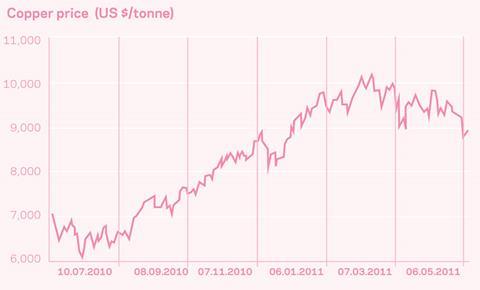Firm negotiates with clients to spread risk of rising material costs over long-term projects
Galliford Try has negotiated with clients to vary the price of contracts depending on material prices in order to spread the risk of rising costs.
Ken Gillespie, managing director of the firmŌĆÖs construction business, said that ŌĆ£volatileŌĆØ materials prices were forcing the firm to negotiate with clients about flexible contracts.
He said the decision to include material price variations in contracts was made ŌĆ£project by projectŌĆØ, and he could not estimate the proportion of contracts amended in this way.
He said that spiralling costs threatened to make lengthy projects dangerous: ŌĆ£Long-term contracts are too high riskŌĆØ.
He argued that by getting contractors to bear the brunt of rising costs, clients were actually increasing the danger that their supply chain would fold.
ŌĆ£If the client wants to transfer the risk [to the contractor] then heŌĆÖs taking quite a risk,ŌĆØ he said.
Asked if many clients were willing to factor in material prices, he said: ŌĆ£It depends on the maturity of the client.ŌĆØ
Material prices rose 6.8% in 2010, according to RICS tender price information, and have broadly continued to rise this year until the commodities bubble burst last week driving down prices.
Rudi Klein, chief executive of the Specialists Engineering ContractorsŌĆÖ Group, said that businesses were threatened by uncertainty over material prices.
ŌĆ£We need to reapply price fluctuations in contracts. Firms must be compensated for rising material prices, immediate effect.
ŌĆ£Material price rises are putting many businesses on a knife edge between survival and insolvency.ŌĆØ
Noble Francis, economics director at the Construction Products Association, said that although commodities fell last week, longer-term they will rise.
He also said that some prices had risen so much that it was not possible for contractors to absorb them through margins.




























No comments yet